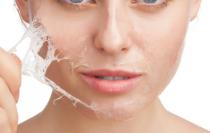While anyone can experience dry skin at any time of the year, it seems to be especially prevalent during the colder winter months. As temperatures and humidity levels dip from November through March, there’s a concomitant increase in the likelihood of chapped, itchy and flaky skin.
Before listing some of the myriad of remedies available, it’s helpful to take an alternative look at what may be contributing to your dry skin. Certainly the above-mentioned climactic conditions are key, but there also may be underlying factors that play significant roles as well.
That’s where a trained holistic practitioner can be particularly insightful. Dr. Sergey Kalitenko, who is seeing patients in EcoBeautica Spa owned by Margarita Zeyger,, utilizes a functional approach to good, responsible medicine. By looking at each patient’s physiological and environmental root causes, he can effectively address their concerns from a highly individualized and informed perspective.
As we age, our skin naturally becomes thinner and drier, making those 40 years or older more prone to seasonal dry skin. Likewise with men and women who work in a job that requires immersion in water, such as nurses, hairstylists and dishwashers, or who swim regularly in indoor chlorinated pools.
Delving below the surface a bit more reveals possible hormonal influences. Low thyroid or low testosterone can cause inadequate sebaceous and/or sweat gland production. Combine this with excessive sebaceous gland secretion (skin oil) removal from using hot water and harsh soaps, and you’ve got the makings of tight, chapped skin.
Physicians and functional experts like Dr. Kalitenko in EcoBeautica Spa can diagnose hormonal imbalances through blood work. If a patient is found to have a low thyroid level, it can be boosted with the aid of an iodine supplement. Men with decreased testosterone levels can bring those back up by taking zinc along with copper in a recommended ratio of 50 to 2.
Here are some additional seasonal strategies from Dr. Kalitenko to prevent and help dry, winter skin for his patients:
Eat nutritiously and eat naturally. In the spirit of the early cavemen, consume a diet rich in fresh vegetables and fruits, fermented vegetables, lean protein and cold-water fish. Steer clear of carbohydrates containing fructose syrup, as well as simple carbs, processed foods and grains. Make sure you get enough vitamins A and C to nourish and rejuvenate dry, lackluster skin.
Fatten up your foods. Not with unhealthy fats such as those found in French fries and candy, but with heart-healthy omega 3 “good fats” found in pharmaceutical-grade fish oil, grass-fed beef, sardines, herring and anchovies. Coconut oil, both inside and out, should be considered as well.
Slather on the sunscreen. It may seem counter-intuitive, but those pesky UV rays can still wreak havoc on unshielded skin in the winter, so apply a broad-spectrum sunscreen to your face and hands approximately 30 minutes before heading outside. The antioxidant Astaxanthin provides additional protection against the sun.
Practice a seasonally appropriate skincare regimen. Avoid soaps and hot water as they can not only remove skin oil from your face, but may cause allergic inflammation leading to dry skin. Use gentle face cleaners and shampoos with warm water instead – and take shorter showers and baths.
Moisturize – inside and out. Try a humectant-containing “ointment” moisturizer that is oil-based, rather than water-based, to create a moisture-retaining protective layer on your skin. When comparing oils, opt for non-clogging oils like avocado, almond or mineral oils as opposed to shea oil. Drink plenty of water to keep hydrated during these less-humid months, but don’t drink so much that it brings your sodium levels down too far. And use humidifiers throughout your house so that all family members benefit from the added moisture.
This is for information purposes only and should not be considered as a medical advice. Of course you should consult your physician before making any health decisions. To schedule a consultation with Dr. Kalitenko in Ecobeautica Spa to determine and address the root causes of your dry skin, contact Ecobeautica Spa conveniently located in Brooklyn (718-382-9200).
http://www.webmd.com/beauty/skin/ten-winter-skin-care-tips
Related Pages
Health Coaching
Nutrition
Sun Protection
Supplement Counseling

